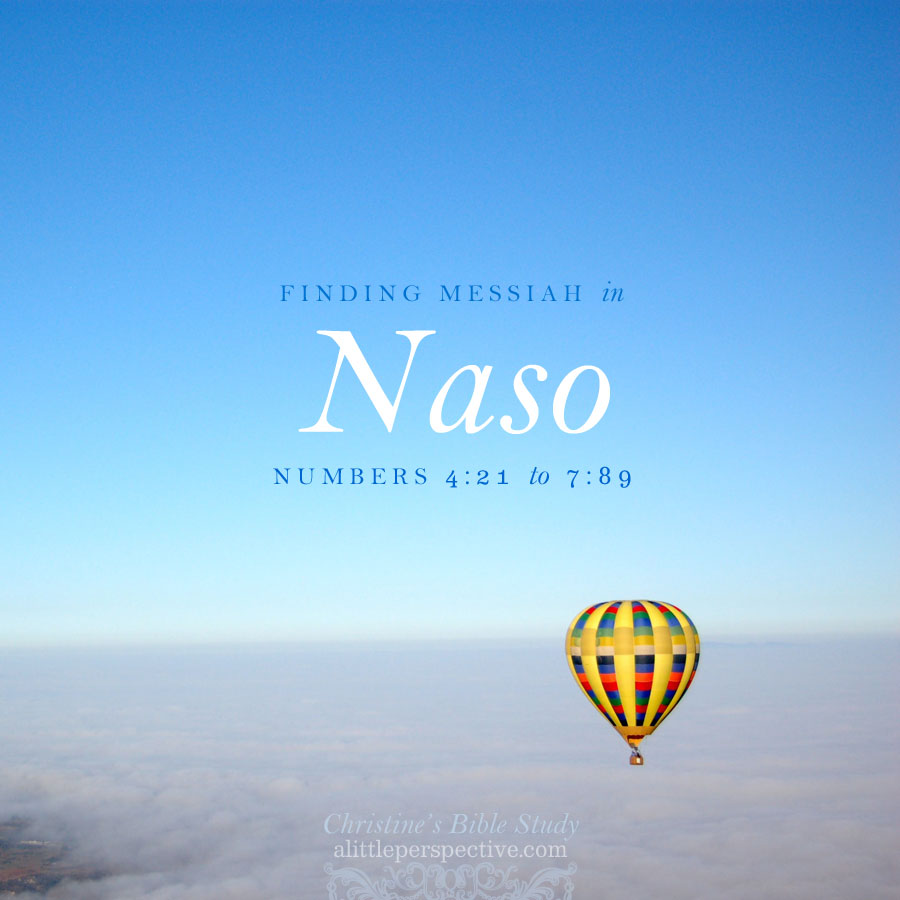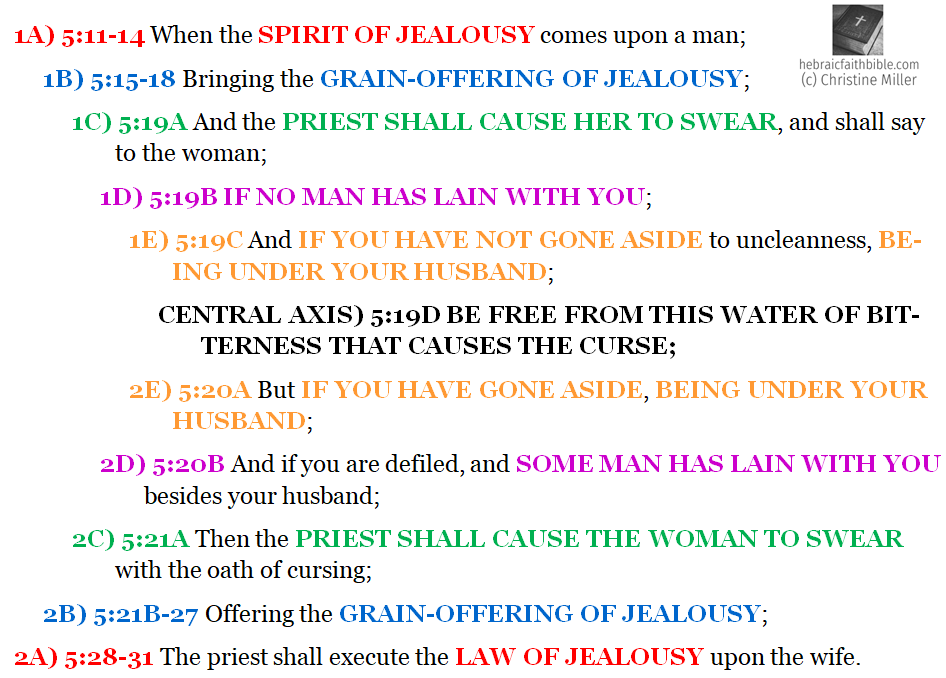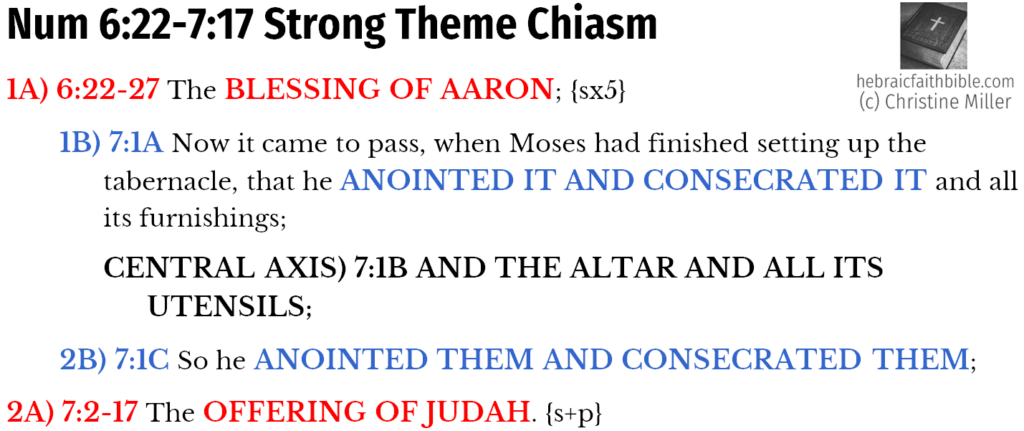Num 4:21–5:10
The Hebrew paragraphs:
4:21-28 {s} The duty of Gershon/ Ithamar the priest
4:29-37 {s} The duty of Merari/ Ithamar the priest/ the number of Kohath
4:38-49 {p} The number of Gershon/ the number of Merari/ number of Levites
5:1-4 {p} Put out of the camp the unclean and defiled
5:5-10 {p} Making restitution when YHVH has been trespassed against
But if the man has no kinsman to whom recompense may be made for the trespass, let the trespass be recompensed unto YHVH, even to the priest … Num 5:8
“Kinsman” is the Hebrew ga’al, גאל, Strong’s H1350, the verbal root “to redeem.”
gimel ג = foot, thus foot, walk, gather
aleph א = ox head, thus strength, power, leader
lamed ל = shepherd’s staff, thus teach, yoke, to, bind
The cognate words will help us find the parable being told. The most common and foundational cognate means, “to roll; round,” with others signifying round objects, or a circle, and so on; because to walk (gimel) as our authority (aleph) has taught us (lamed) to walk, is to observe the holy days through the circle of the year, year after year. Inherent in the root is the concept of something coming around again for a second time. To redeem, then, is to let someone or something see another day, to return to their life again, to receive a second chance.
Thus the ga’al is the kinsman-redeemer, the next of kin who redeems his relative if he comes into bondage or if he must sell his inheritance in a time of poverty. The kinsman-redeemer acts to give their kinsman a second chance. And when a redeemer cannot be found, YHVH Himself steps in, in Messiah Yeshua, and takes the place of our kinsman-redeemer.
I have blotted out, like a thick cloud, your transgressions, and like a cloud, your sins. Return to Me, for I have redeemed you. Isa 44:22
[We are] looking for the blessed hope and glorious appearing of our great God and Savior Jesus Christ, who gave Himself for us, that He might redeem us from every lawless deed and purify for Himself His own special people, zealous for good works. Titus 2:14
Num 5:11-31
5:11-31 {p} The law of a jealous husband and an unfaithful wife
The chiastic structure for this section of Scripture throws a spotlight onto a prophecy of Messiah:
The Israelites encountered the water of bitterness at Marah:
And when they came to Marah, they could not drink of the waters of Marah, for they were bitter, therefore the name of it was called Marah. And the people murmured against Moses, saying, “What shall we drink?” And he cried unto YHVH; and YHVH showed him a tree, which when he had cast into the waters, the waters were made sweet; there he made for them a statute and an ordinance, and there he tested them. Exo 15:23-25
We saw this same prophetic picture of Messiah in Exo 13:17-15:26. Recall that the Hebrew word for “tree” is Strong’s H6086, a tree, wood, plank, or gallows. The same word is used in the Torah command which Paul quotes in Gal 3:13,
Messiah has redeemed us from the curse of the Law, being made a curse for us, for it is written, ‘Cursed is every one who hangs on a tree.’ Gal 3:13, from Deu 21:23
The tree is the cross, which turns our bitterness into sweetness, and here, the central axis proclaims a second time, freedom from the bitter water that brings a curse.
Num 6:1-21
6:1-21 {p} The law concerning the Nazirite
And YHVH spoke unto Moses, saying, “Speak unto the children of Israel, and say unto them, ‘When either man or woman shall separate themselves to vow a vow of a Nazarite, to separate themselves unto YHVH, he shall separate himself from wine and strong drink, and shall drink no vinegar of wine, or vinegar of strong drink, neither shall he drink any liquor of grapes, nor eat moist grapes, or dried.’” Num 6:1-3
“Separate” is in Hebrew, נזר nazar, Strong’s H5144, a verbal root meaning, “to consecrate.” The pictographs are nun + zayin + resh.
nun נ ן = seed, thus continue, heir, son
zayin ז = mattock, thus tool, food, cut, nourish
resh ר = head of man, thus head, first, top, beginning, man
The parable is, the hair which has continued (nun), cut (zayin) from the head of the man (resh) as the sign that his vow of dedication has been completed. It refers to the practice of a Nazirite, who lets the hair of his head grow at the beginning of his vow, and does not cut his hair until the days of his consecration are completed.
We have already seen a prohibition against wine and strong drink.
And YHVH spoke unto Aaron, saying, “Do not drink wine nor strong drink, you, nor your sons with you, when you go into the tabernacle of meeting, lest you die; it shall be a statute forever throughout your generations, that you may discern the difference between holy and unholy, and between clean and unclean; and that you may teach the children of Israel all the statutes which YHVH has spoken unto them by the hand of Moses.” Lev 10:8-11
A Nazirite, then, is someone, not of the family of Aaron, who wishes they too can be in YHVH’s presence as the Levites and priests can. They take the vow of a Nazirite, and dedicate themselves to YHVH, and separate themselves to YHVH just as Aaron and just as the Levites are separated to YHVH, and they shall be separate for the days of their vow. YHVH receives it as an act of worship, and as consecration to Him, just as Aaron and just as the Levites are consecrated to Him.
Now, these actions of Yeshua preceding the crucifixion, and during the crucifixion, make more sense.
And He took the cup, and gave thanks, and gave it to them, saying, “Drink all of it; for this is My blood of the new testament, which is shed for many for the remission of sins. But I say to you, I will not drink, from this moment hence, of this fruit of the vine, until that day when I drink it new with you in my Father’s kingdom.” Mat26:27-29
And when they were come unto a place called Golgotha, that is to say, a place of a skull, they gave Him vinegar to drink mingled with gall; and when He had tasted of it, He would not drink. Mat 27:33-34
He was honoring His consecration to YHVH as High Priest, ready to offer His blood as the spotless Lamb of God on the altar of the cross, for the remission of the sins of the world.
Now isn’t it interesting that the apostle says about Yeshua,
And [Joseph] came and dwelt in a city called Nazareth, that it might be fulfilled which was spoken by the prophets, ‘He shall be called a Nazarene.’ Mat 2:23
According to the commentaries, the prophecy to which Matthew refers, is found in Judges.
“For, lo, you shall conceive, and bear a son; and no razor shall come on his head, for the child shall be a Nazarite unto God from the womb, and he shall begin to deliver Israel out of the hand of the Philistines.” Jud 13:5
The angel spoke concerning Samson, a Messiah type in Scripture, who, consecrated to God, received power by the Spirit of God to deliver Israel from the hand of her enemies. Yeshua, not being of the house of Aaron in the natural, but of the house of David, still fulfilled the vow of a Nazarite, separated and consecrated to God just as the priests and Levities.
Num 6:22-7:89
6:22-23 {s} Aaron and his sons to bless the children of Israel
6:24 {s} YHVH bless you and keep you
6:25 {s} YHVH make His face shine upon you + be gracious to you
6:26 {s} YHVH lift up His countenance upon you + give you peace
6:27 {s} Priests put YHVH’s name upon Israel; He will bless them
7:1-11 {s} Leaders’ offering for the Levites/ dedication of the altar
7:12-17 {p} 1st day offering: Nahshon leader of Judah
7:18-23 {p} 2nd day offering: Nethanel leader of Issachar
7:24-29 {p} 3rd day offering: Eliab leader of Zebulun
7:30-35 {p} 4th day offering: Elizur leader of Reuben
7:36-41 {p} 5th day offering: Shelumiel leader of Simeon
7:42-47 {p} 6th day offering: Eliasaph leader of Gad
7:48-53 {p} 7th day offering: Elishamah leader of Ephraim
7:54-59 {p} 8th day offering: Gamaliel leader of Manasseh
7:60-65 {p} 9th day offering: Abidan leader of Benjamin
7:66-71 {p} 10th day offering: Ahiezer leader of Dan
7:72-77 {p} 11th day offering: Pagiel leader of Asher
7:78-83 {p} 12th day offering: Ahira leader of Naphtali
7:84-89 {p} Dedication offering for the altar/ the voice of YHVH above the mercy seat
Num 6:22-7:17 makes one of the strong themes of Scripture with the following chiastic structure:
It seems a mishmash of events, but the Hebrew paragraph divisions reveal that God considers Num 6:22-7:17 a unified topic. The central portion, of which there can be no doubt, forces the A pair together, and each A pair, for a second testimony of accuracy, likewise forms their own structures. At first they do not seem to pair; however, this is the Messianic prophecy. Messiah is of the tribe of Judah, and of the house of David the king, but also serves as High Priest to God.
And being made, He [Yeshua] became the author of eternal salvation unto all who obey Him, called of God as High Priest after the order of Melchizedek. Heb 5:9-10
The order of Melchizedek is the order of the office of king and priest combined in one person.
And Melchizedek, king of Salem, brought out bread and wine; and he was the priest of Most High God. Gen 14:18
YHVH has sworn, and will not repent, “You are a priest for ever after the order of Melchizedek.” Psa 110:4
Psalm 110 is a Messianic psalm. Whenever an ordinary king of Israel or Judah tried to also serve in the office of priest, he was rejected.
As for Saul, he was still in Gilgal, and all the people followed him trembling. Then he waited seven days, according to the time set by Samuel. But Samuel did not come to Gilgal; and the people were scattered from him. So Saul said, “Bring a burnt offering and peace offerings here to me.” And he offered the burnt offering. Now it happened, as soon as he had finished presenting the burnt offering, that Samuel came; and Saul went out to meet him, that he might greet him. And Samuel said, “What have you done?” Saul said, “When I saw that the people were scattered from me, and that you did not come within the days appointed, and that the Philistines gathered together at Michmash, then I said, ‘The Philistines will now come down on me at Gilgal, and I have not made supplication to YHVH.’ Therefore I felt compelled, and offered a burnt offering.” And Samuel said to Saul, “You have done foolishly. You have not kept the commandment of YHVH your God, which He commanded you.” 1 Sam 13:7b-13a
But when he [King Uzziah of Judah] was strong his heart was lifted up, to his destruction, for he transgressed against YHVH his God by entering the temple of YHVH to burn incense on the altar of incense. So Azariah the priest went in after him, and with him were eighty priests of YHVH—valiant men. And they withstood King Uzziah, and said to him, “It is not for you, Uzziah, to burn incense to YHVH, but for the priests, the sons of Aaron, who are consecrated to burn incense. Get out of the sanctuary, for you have trespassed! You shall have no honor from YHVH God.” Then Uzziah became furious; and he had a censer in his hand to burn incense. And while he was angry with the priests, leprosy broke out on his forehead, before the priests in the house of YHVH, beside the incense altar. And Azariah the chief priest and all the priests looked at him, and there, on his forehead, he was leprous; so they thrust him out of that place. Indeed he also hurried to get out, because YHVH had struck him. 2 Chr 26:16-20
It is because it is reserved for Messiah to serve in the office of both king, and priest, after the order of Melchizedek, that these kings were rejected. The A pair reveals the combination of both priest (1A, Aaron as the prophetic type) and king (2A, Judah, as the ruling tribe over Israel), thus, speaking prophetically of Messiah serving after the order of Melchizedek.
Now how do we know that we have analyzed the structure rightly, that it prophesies of Messiah after the order of Melchizedek? The central axis, the main point of the structure, is a sentence fragment: and the altar and all its utensils. Why is the altar the main point of the strong theme? The altar is where the sacrifice for sin is offered. And Messiah Yeshua is the prophesied sacrifice for sin.
NUMBERS 4:21-7:89 ANNUAL NASO “LIFT UP” OUTLINE | NUMBERS in CHIASTIC STRUCTURE
FINDING MESSIAH in TORAH: A MESSIANIC DISCOVERY THROUGH the TORAH PORTIONS
THE LAW of LOVE: THE GOSPEL of GRACE REVEALED in the COMMANDMENTS OF GOD



















Leave a Reply